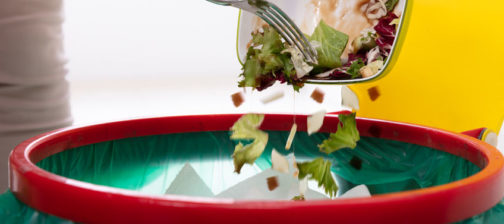Written By Julie Paiva, CHHC
We all know that recycling is a good thing to do, but many of us get too busy with our daily lives to take the few extra steps to be more earth-friendly. We can become blind to how much not recycling adversely affects our environment. Like with everything in life, you don’t have to turn your world upside down and become a “Recycling Master” overnight. It is important to take small, incremental steps, rather than make big, drastic changes, to create transformation. By taking baby steps, you are more likely to successfully establish a new (and lasting!) habit. So today we’re going to specifically focus on one item, its effects on the environment, and how you can reduce, reuse, and recycle it. And that one item is…PLASTIC BAGS!
Why are plastic bags so popular?
According to the EPA, we use over 380 billion plastic bags yearly in the United States! Plastic has become such a popular item in our culture for many reasons – it is water-resistant, has a long life, is inexpensive, and is incredibly lightweight. Unfortunately, all of these qualities are also what makes it so difficult to dispose of.
What are the negative effects of plastic bags?
A major concern with plastic bags is their negative impact on rivers, lakes, and oceans. Being as lightweight as they are, plastic bags often blow out of landfills or dumps and make their way into waterways. This has a devastating effect on marine ecosystems. Not only does marine life get trapped in plastic debris, but they often mistake plastic bags for food. The plastic cannot pass through the digestive system and blocks the animal’s intestines.
When disposed in landfills, plastic bags can release chemicals into the ground, harming the surrounding soil and often seeping into the groundwater. Not only does this affect wildlife, soil quality, and the surrounding ecosystem, but it can also contaminate our drinking water. Plastic is made with many chemicals, including bisphenol A (BPA).
How you can play your part in reducing plastic bag waste?
REDUCE, REUSE, RECYCLE! We hear that a lot, but many don’t know practical ways to actually follow through. Here are some easy tips for how you can reduce, reuse, and recycle plastic bags in your daily life.
- Ask your store clerk not to “double bag” your grocery items and invite them to put as many items (as will reasonably fit) into one bag. Better yet, decline the bag and carry item(s) by hand.
- Ask for paper bags instead of plastic bags when given the choice.
- The best option is to bring your own reusable shopping bag to the grocery store. Canvas bags are more durable, have sturdier handles, and hold more items! (Pro tip: Keep a stash of tote bags in your car or on your door handle so that you don’t forget. And remember to put the bags back after you unpack your groceries!)
- Purchase food items such as rice, beans, spices, nuts or oats in bulk bins and fill a reusable bag or glass container.
- Store food in mason jars or other glass containers rather than ziplock bags.
How to reuse plastic bags:
- Plastic bags are great for disposing pet waste – use them for cleaning the cat litter or on walks with the dog!
- Bring any plastic bags you have around the house on your next shopping trip. You can store extras in the car to have in case you forget your reusable shopping bag.
- Keep your plunger in a plastic bag to keep the bathroom floor clean.
- Tie plastic bags around your shoes so they don’t get dirty or wet when working in the garden or mowing the lawn!
How to recycle plastic bags:
- Take any plastic bags you have accumulated to a drop-off recycling location. Find out where to recycle plastic bags at www.iwantotberecycled.org/search. Many larger markets have plastic bag recycling bins when you enter their stores.
- Ask your local Salvation Army, home improvement stores, or thrift shops if they can use your plastic bags.
As a global population, we have the ability to lower the amount of new plastic that is created each year by increasing the amount of plastic we recycle. If each person reduces, reuses, and recycles plastic bags, we can have a profound impact on the quality of our lakes, rivers, streams, wildlife, and health.
Thanks for playing your part!




